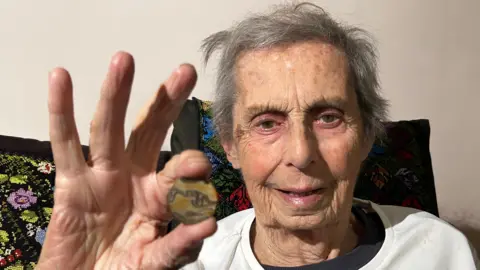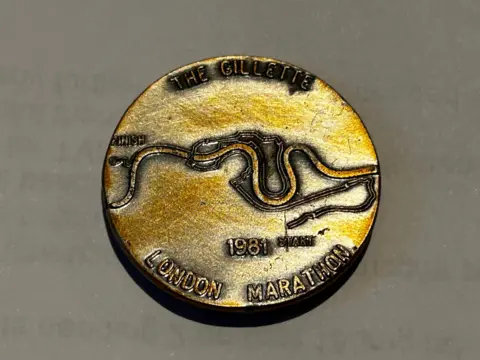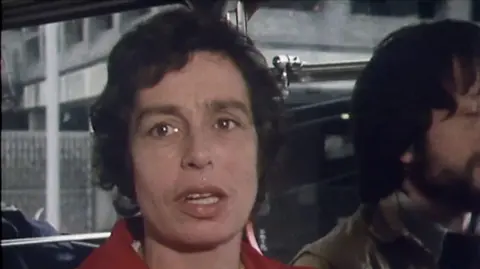First London Marathon: 'They had forgotten women were in the race'
 BBC
BBCIn the Spring of 1981, Jeanne Coker pinned a Union Jack on herself and joined more than 6,000 fellow runners in the first London Marathon.
At the inaugural marathon, just 4% of the competitors were women – compared with an expected 45% in this Sunday's race – but had it began a decade sooner, Jeanne would have been banned from competing.
In Britain, women were banned from competing in running road races any longer than 6km, which is less than four miles, until 1975.
Jeanne, who is from Wembley, was 44 when she ran in the first London Marathon and only about one of 300 women to sign up. It was also her first marathon, completing the 26.2-mile (42.2 km) course in four hours and eight minutes.
"The whole thing was about women and men are being treated differently," Jeanne told BBC London.
"They had forgotten there were women in the race and when we got to Charing Cross they hadn't unlocked the women's toilets. That is a big issue before a race!"

Jeanne started running when she went to London to go to university.
She was living in Hampstead at the time and met with some runners from Highgate.
"I started running for fitness, because I was a netballer," she said.
"If you were of a standard, most women of my generation were in netball or a hockey player, there wasn't anything else because you weren't allowed to run on the roads for quite a long while."
She said, at the time, "annoyed wasn't a strong enough word" to describe how she felt about being told women couldn't do the same things a man could do.
"If you're stopping somebody from doing something because of their gender, that's a nonsense," she said.
"I've worked a lot to get things changed for women.
"One year, we decided that we were going to challenge what was going on, so 10 of us went to a different 10-mile road race over the Easter weekend.
"We said that if anybody got caught, or banned for running on a road, we would all stand up and be counted and there would be others who would do the same for us.
"But nothing happened because nobody believed in this rule."

It is now 50 years since the UK ban on female marathon runners participating in races was lifted.
Jeanne said the public perception of men and women running as equals in the first London Marathon in 1981 was of "togetherness".
"I never met any man who expressed being against women running with men. We had tremendous support.
"Men didn't know how to change the rules and neither did we," she added.
"I just wanted to run the first London Marathon, the fact that I was a woman didn't enter my head, simply that I'm a runner."
Jeanne described the crowds supporting the runners on the day as "great".
"I'm very proud to have been part of the first London Marathon," she said.
"I wish I could do it again, it was a great thing to have done."
Listen to the best of BBC Radio London on Sounds and follow BBC London on Facebook, X and Instagram. Send your story ideas to [email protected]
